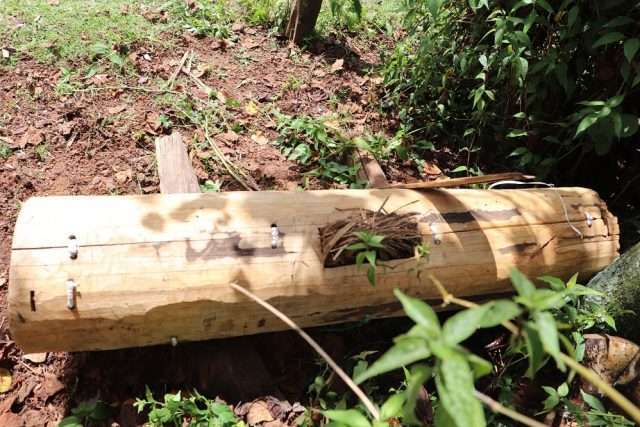A Livestock Bill 2021 is tabled at the Kenya’s National Assembly. Section 98 – 103 zeroes in on regulating beekeeping in Kenya. We do not know the motivation for this action but we will be keep to find out why beekeeping must be regulated. It maybe for the fear of bee stings.
Beekeeping is an important economic, social and cultural activity for many ethnic communities in Kenya.
This is an offending Bill for ethnic minorities who have been bee keepers for centuries such as the Ogiek and the Boni or Awer communities of Mau and Boni forests respectively.
If the Livestock Bill 2021 is enacted into law, it will be a human right violation for the ethnic minorities mention above. These communities lack representation at the legislative bodies such as the National Assembly where the bill will be discussed.
The member Ogiek ethnic own thousands of beehives in their ancestral lands in Mau forest. Their livelihoods of these ethnic minorities will be negatively affected.
The Livestock Bill 2021 was received by the Department of Legal Services on 13 May 2021.
We should embrace the science of bee keeping and understand that bees nowadays can even be kept in your living room. With the advent of indoor beekeeping, you can in fact keep bees even in urban areas.
Section 98 (a) states that beekeeping is to be done only at the apiary. The proponents of this law should know that sometimes bees establish their beehives naturally on people’s property without any invitation whatsoever. Loosely interpreted by a layman it means that farmers should be vigilant and ensure bees do not perch on their land at all costs because there are consequences. This will lead to killing of bees by use of fire or insecticides notwithstanding the benefits those bees have for the farms in terms of pollination.
Section 98 (b) states a person shall not own or possess bees or beekeeping equipment for commercial purposes unless the person is registered under the proposed Act. To say the least this is OFFENSIVE. We should not criminalize beekeeping which is a major source of livelihood for many households across the country. This proposed section of the law is ARCHAIC equivalent to the prohibition of planting coffee and tea for Africans.
According to Statista, China, Turkey and Iran are top three largest natural honey producers in the world. At the African level, Ethiopia (43,300 MT), Kenya (25,000 MT) Tanzania (8,000 MT) are the top three producers of natural honey. Ethiopia is the power house in honey production.
According to data released by Directorate of Livestock Production and the National Bee Keeping Institute in 2014, Kenya had over 2 million bee hives.
The new bottlenecks introduced in the Livestock Bill 2021 will further reduce the amount of natural honey produced in Kenya. These new conditions alongside lack of means of transport for raw honey to processing facilities and middlemen will strangle honey production in Kenya.
Major natural honey producing areas in Kenya are: Baringo, Mwingi, Coast, Western, Kitui, Tharaka and West Pokot.
What do we want to see in the Livestock Bill 2021?
We had like to see new strategies on how the law will help mitigate climate change to allow increased honey production in Kenya. Secondly, the use of pesticides has to be controlled near areas where bees are kept to nourish the beekeeping trade.
GOT a story? Contact Kerosi Doctom on EMAIL info@kerosi.com


